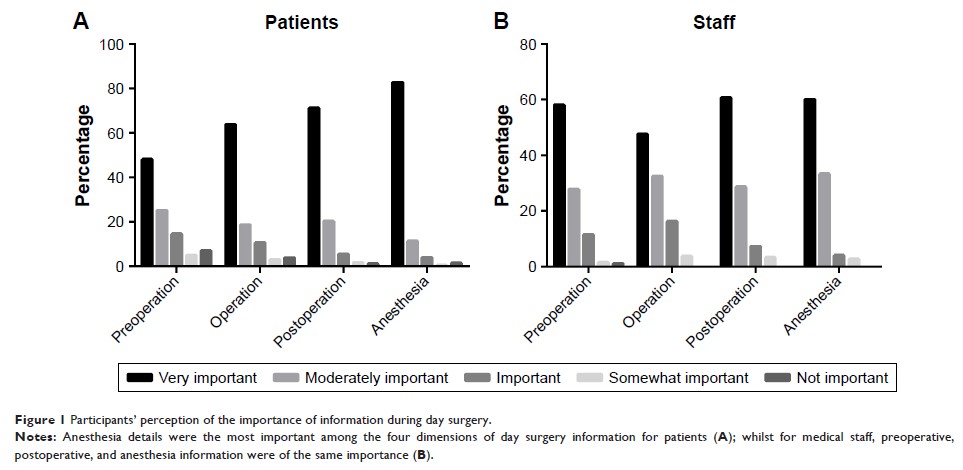108899
论文已发表
注册即可获取德孚的最新动态
IF 收录期刊
- 3.4 Breast Cancer (Dove Med Press)
- 3.2 Clin Epidemiol
- 2.6 Cancer Manag Res
- 2.9 Infect Drug Resist
- 3.7 Clin Interv Aging
- 5.1 Drug Des Dev Ther
- 3.1 Int J Chronic Obstr
- 6.6 Int J Nanomed
- 2.6 Int J Women's Health
- 2.9 Neuropsych Dis Treat
- 2.8 OncoTargets Ther
- 2.0 Patient Prefer Adher
- 2.2 Ther Clin Risk Manag
- 2.5 J Pain Res
- 3.0 Diabet Metab Synd Ob
- 3.2 Psychol Res Behav Ma
- 3.4 Nat Sci Sleep
- 1.8 Pharmgenomics Pers Med
- 2.0 Risk Manag Healthc Policy
- 4.1 J Inflamm Res
- 2.0 Int J Gen Med
- 3.4 J Hepatocell Carcinoma
- 3.0 J Asthma Allergy
- 2.2 Clin Cosmet Investig Dermatol
- 2.4 J Multidiscip Healthc

一项横断面研究,旨在评估中国患者与医务人员对日间手术信息的感知差异
Authors Deng X, Liang S, Li H, Gouda D, Zhu T, Xiao K
Received 1 December 2018
Accepted for publication 11 February 2019
Published 5 March 2019 Volume 2019:13 Pages 381—387
DOI https://doi.org/10.2147/PPA.S196674
Checked for plagiarism Yes
Review by Single-blind
Peer reviewers approved by Dr Justinn Cochran
Peer reviewer comments 2
Editor who approved publication: Dr Naifeng Liu
Purpose: The
development of day surgery in China is still in its infancy. The aim of this
study is to examine the difference in perception between patients and medical
staff about day surgery and to find out what kind of information should be
delivered to patients perioperatively.
Methods: The study
was designed as a cross-sectional study using survey questionnaires. Patients
undergoing day surgery and medical staff working in the day surgery center
received a preoperative teaching questionnaire (PTQ). The PTQ consisted of
preoperative, operative, postoperative and anesthesia information. Participants
were asked to rate accurately what day surgery information they perceived as
important on a five-point Likert-type scale that ranged from very important to
not important. The main outcome was the value patients and staff place on
perioperative information.
Results: For
patients, details of anesthesia (82.6%) was the most important day surgery
information, while for medical staff, preoperative (58.1%), postoperative
(60.7%) and anesthesia (60.0%) information were of the same importance.
Patients ranked surgery effect (83.3%) and pain management (82.5%) as two of
the top five most important details about day surgery, but these were not
listed in the top 5 rankings of staff. Student’s t-test results of
mean rankings also showed that patients placed more importance on surgery
effect (4.8±0.6, 4.6±0.6, P =0.036) and pain management (4.8±0.5, 4.5±0.5, P =0.031) than the
medical staff did.
Conclusion: In China,
day surgery is an emerging practice with both patients and medical
practitioners still lacking experience, so high-quality perioperative teaching
is necessary and important. Our study examining patients and staffs’ views on
day surgery information should be considered when developing perioperative
teaching programs. To increase patient satisfaction of the day surgery
experience, delivery of patient-specific information tailored to individual
circumstances is necessary.
Keywords: day
surgery, perception, perioperative teaching, anesthesia, pain management
